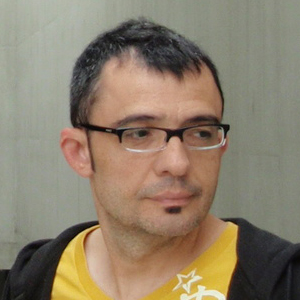
Juan Vicente Aliaga
Miembro del Proyecto
Research Project:
Arte Contemporáneo, Interculturalidad y Posiciones de Género
Key Concepts:
Feminismos, Teoría Queer, Interculturalidad, Práctica Artística, Políticas
Juan Vicente Aliaga (Valencia, 1959) está adscrito a la Facultad de Bellas Artes de la Universidad de Politécnica de Valencia. Su trabajo de investigación se centra en torno al género feminista y los estudios queer, con especial atención a las representaciones culturales, artísticas y políticas de la diversidad sexual. Su enseñanza también se ha centrado en el papel fundamental que desempeña la micropolítica y la contribución de los estudios interculturales y poscoloniales. Actualmente está explorando tres temas principales de investigación: genealogías feministas en el arte español a partir de la década de 1960, la presencia visual y cultural y la agencia de la diversidad sexual en el mundo árabe y la revisión crítica del arte moderno desde una perspectiva de género.
El primer número está en marcha con la realización de una exposición que está comisariado por el MUSAC (León, España), programada para junio de 2012; la segunda cuestión ha sido addresed en un libro sobre la obra de artista libanés Akram Zaatari, El Molesto Asunto (Charta, Milán, 2011) y también en una demostración llevada a cabo tanto en el MUSAC, León, en 2011 y MUAC, Ciudad de México, 2012. La tercera cuestión se ha dado frutos recientes: el comisariado de una exposición sobre el fotógrafo francés Claude Cahun celebrado en Jeu de Paume, París, La Virreina, Centre de la Imatge, Barcelona, ambos en 2011, y en el Art Institute Chicago, en 2012. Como resultado de esto se publicó un libro en Francia (Ed. Hazan, Paris, 2011).
Juan Vicente Aliaga es miembro del Grupo de Investigación Ciudad Espacial y Tecnologías de Género de la Universidad Politécnica de Valencia. Este grupo ha organizado recientemente un seminario que giró en torno al tema Sex and the City el 14 de febrero de 2012. Entre los oradores estuvieron: Juan Antonio Suárez, de la Universidad de Murcia; Patricia Mayayo, Universidad Autónoma de Madrid, Josep Maria Montaner, Politécnica de la Universidad de Barcelona y Jane Rendell de The Bartlett, de la Universidad de Londres. También es parte de otros dos proyectos de investigación: Cartografía Crítica del Arte y la Visualidad en la Era de lo Global: Nuevas Metodologías, Conceptos y Enfoques Analíticos; y Representaciones Culturales de Sexualidades Marginadas en España (1970-1995), ambos financiados por el Ministerio de Ciencia e Innovación, 2011.
Corresponsal para Artforum (Nueva York) y crítico de arte para Exit (Madrid).
Publicaciones:
Orden fálico. Androcentrismo y violencia de género en las prácticas artísticas del siglo XX (Madrid, Akal, 2007); Arte y cuestiones de género (San Sebastián, Nerea, 2004); Bajo vientre. Representaciones de la sexualidad en la cultura y el arte contemporáneos (Valencia, Direcció cultural de Promoció Cultural, Museus i Belles Arts, 1997).
